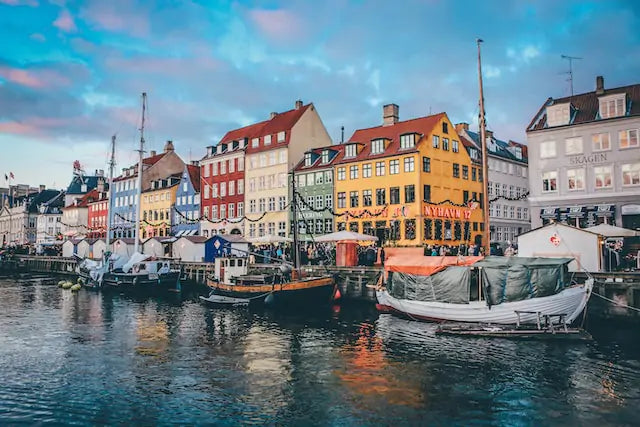Your basket is currently empty.
Shop NowWorld’s Greenest Country 2022

Climate change is a global challenge and governments across the world are stepping up to tackle the issue. The Environmental Performance Index (EPI) scores countries on the measures they’ve taken to combat climate issues. It rated Denmark as the World's Greenest Country in 2022. Let’s take a look at why.
Why was Denmark the world’s greenest country last year?
The EPI report grades countries in 11 different categories including Air Quality, Biodiversity & Habitat, Environmental Health, Ecosystem Vitality, and Climate Change. Each country is graded then awarded a combined score out of 100. Denmark scored the highest at 77.9 for high performance in all categories. The Scandinavian nation won praise for its efforts around clean energy and sustainable agriculture.
Denmark leads the way with clean energy
One of the reasons why Denmark was the world’s greenest country 2022 is the way it has embraced clean energy. 50% of its electricity is generated by wind and solar power.
The country is home to Scandinavia's biggest wind farm, which became operational in 2021. It generates enough electricity for 600,000 households.
Even before this existed, wind turbine energy production actually exceeded the country’s demand in 2019.
Solar power is another popular clean energy source in Denmark. Solar panels on buildings produce district heating and electricity.
As well as wind and solar power, bioenergy from agriculture is also very popular. In fact, more than two-thirds of the country’s renewable energy comes from biomass including manure, animal fats, wood chips/pellets, and straw. Half of the fuel used for district heating comes from biomass and other renewable energy sources.
Sustainable agriculture in the world’s greenest country 2022
Denmark is a world leader when it comes to innovation in sustainable food and agriculture production. Farmers are using digital tools to help them become more efficient and reduce their carbon footprint. They are also conserving organic waste streams for biomass production. Climate-smart agriculture is becoming a reality.
Reducing the use of pesticides, improving biodiversity, and reducing greenhouse gas emissions are now targets for many farmers. As part of a climate agreement, Denmark has pledged to reduce agricultural greenhouse gas emissions by as much as 65% by 2030.
To make this a reality, there have been millions of dollars invested in plant-based research. There is $90 million available to farmers who are willing to produce more plant-based foods and fewer meat products.
Many Danish companies and start-ups are working on producing climate-friendly plant-based versions of bacon, hot dogs, sausages and spreads. Universities and research centres are also on board with the initiative.
Enjoyed reading this article? For more interesting articles on sustainability and the environment, check out the greenest cities in 2022 or how you can improve your own recycling with the best kitchen recycling bins.
